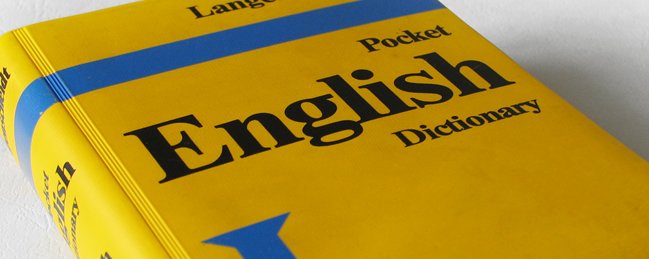
En el artículo de este mes de Tu cita con el inglés, el profesor Ronan O’Donnell explica cuándo y cómo emplear el gerundio y el infinitivo de un verbo. Aunque no parezca demasiado complicado, esta serie de normas seguro que le será de mucha utilidad a más de uno.
Como siempre, os animamos a que nos comentéis de qué temas os gustaría que Ronan hablara en su próximo artículo, así como que compartáis con él vuestras ideas y sugerencias en su página de Facebook: facebook.com/A2BEnglish, donde encontraréis, además, muchos consejos y curiosidades sobre la lengua de Shakespeare y sobre cómo mejorar vuestro nivel de inglés.
To be or not to being
I hope that you are all well. When to use a gerund and when to use an infinitive form? Bare infinitive (go) or to-infinitive (to go)?
Some verbs are followed by a to-infinitive and others take a gerund.
She offered to help with the babysitting.
The job involves driving aroundLondon.Gerund
– Verbs followed by a gerund
Hope, involve, finish, suggest, imagine, consider, appreciate, avoid, face, give up, deny, resist, resent, quit, postpone, practice, risk.
– After adjective and preposition combinations
John is very good at playing football.
Common examples: Good/ bad/ terrible at, capable of, worried about, afraid/terrified of.
– After expressions expressing liking/disliking
I don’t like cycling inLondon.
He can’t stand playing football in the rain.
Common examples: like, love, detest, hate, can’t stand, enjoy
– After verb + preposition
He apologised for breaking the vase.
Paul is worried about travelling alone.
Common examples: consist of, believe in, insist on, approve of
Infinitive
– Verbs followed by an infinitive
Afford, agree, appear, attempt, choose, decide, expect, hope, learn, manage, offer, prepare, pretend, promise, refuse.
– After certain adjectives
The problem was difficult to solve.
Common examples: difficult, necessary, interesting, easy
– To express purpose
I went to town to do some shopping
– Verb + object + to-infinitive
I expected John to answer all the questions
Common examples: expect, persuade, believe, enable
Infinitive (without to)
– After certain expressions
– had better
– would rather– After certain verbs
– can, must, should, let, make
Test
- I can’t afford buy/ to buy/ buying a new car.
- I am late. I must go/ to go/ going now.
- He insisted on carry/ to carry/ carrying the bags.
- I enjoy walk/ to walk/ walking by the sea.
- I came to London study/ to study/ studying English.
- I would rather take/ to take/ taking the bus.
- It was interesting see/ to see/ seeing the way in which older people live.
- I want find/to find/finding a new job.
- It is difficult solve/ to solve/ solving this problem.
- Paul is afraid of walk/ to walk/ walking alone at night.
Answers:
1. to buy, 2. go, 3. carrying, 4. walking, 5. to study, 6. take, 7. to see, 8. to find, 9. to solve, 10. walking
If you wish do some more work take a look at the sentences on this webpage: http://www.writing.utoronto.ca/advice/english-as-a-second-language/gerunds
Practice using the examples by creating your own sentences that you can memorise.





